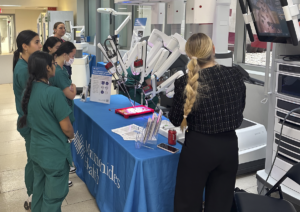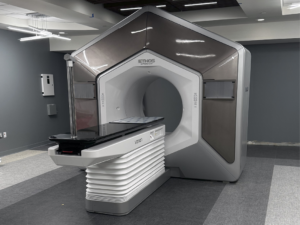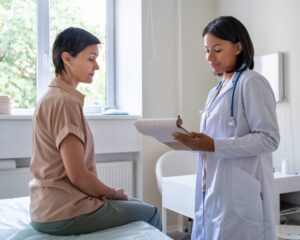Seventy-seven languages. That’s a number represented by the diverse communities of patients seen by providers at Maimonides Medical Center—including physicians-in-training through the center’s 25 ACGME-accredited residency and fellowship programs. “Here, global is local,” says Robin J. Gitman, Vice President/Designated Institutional Official of Academic Affairs. “Our residents arrive here from all over the US and the world, and in turn they learn to care for people with cultural humility, compassion, and respect.”
Indeed, the program’s 500 residents and fellows come from far and wide: traditional, allopathic, and osteopathic medical schools across the US and Canada, and one-third from international schools. With a mission-driven, strategic approach, Maimonides thoughtfully builds its residency programs to represent the diversity of its patients and to meet community needs. A program aptly named Global Is Local provides every resident with essential health equity training, with additional modules offered for those who plan to pursue global health in their specialty. An internal Diversity, Equity, and Inclusion committee also creates a safe space for residents of color to share ideas and promote the institution’s own commitment to diversity. “Everyone who trains here has a unique opportunity to apply global health skills within an institution that offers both academic medical center-level quality care and a community hospital feel,” says Gitman.
In addition to the ACGME-accredited programs and two program applications currently under review, Maimonides offers three CODA-approved dental programs; three society-sponsored fellowships in MIGS, MIS, and breast care; two Maimonides-specific programs, in pediatric hospital medicine and NIS/NER; and four emergency medicine fellowships focused in ultrasound, administration, medical education, and simulation. Access to a 24/7 simulation center is another differentiator of Maimonides’ residency programs, along with a Residents Quality Council that teaches advocacy and process skills to help future physicians fix systemic problems in medicine.
Underpinning the program is a commitment to the career and personal development of each and every resident, adds Gitman. Psychologists and coaches are available to help residents build their professional identities and maintain their personal and mental health throughout the program. The Department of Academic Affairs operates as a kind of incubator to test new initiatives that may improve the experience of residents training at Maimonides.
“Once a resident is in our program, they are in—we don’t turn our back when learning doesn’t happen as expected or a life transition happens. We work to help each and every resident grow as both an individual and as a physician,” Gitman says.




